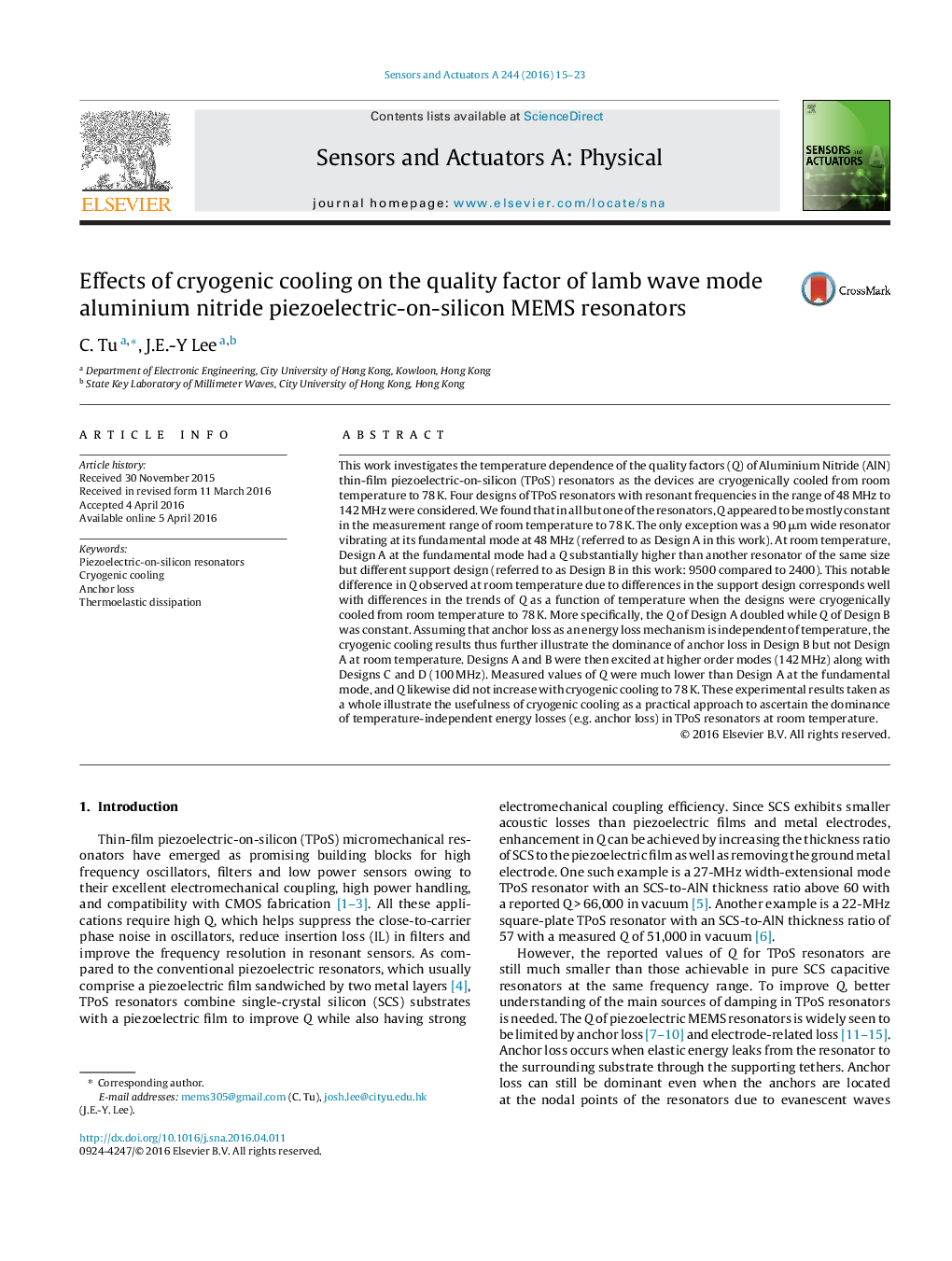| کد مقاله | کد نشریه | سال انتشار | مقاله انگلیسی | نسخه تمام متن |
|---|---|---|---|---|
| 7134745 | 1461856 | 2016 | 9 صفحه PDF | دانلود رایگان |
عنوان انگلیسی مقاله ISI
Effects of cryogenic cooling on the quality factor of lamb wave mode aluminium nitride piezoelectric-on-silicon MEMS resonators
دانلود مقاله + سفارش ترجمه
دانلود مقاله ISI انگلیسی
رایگان برای ایرانیان
موضوعات مرتبط
مهندسی و علوم پایه
شیمی
الکتروشیمی
پیش نمایش صفحه اول مقاله

چکیده انگلیسی
This work investigates the temperature dependence of the quality factors (Q) of Aluminium Nitride (AlN) thin-film piezoelectric-on-silicon (TPoS) resonators as the devices are cryogenically cooled from room temperature to 78 K. Four designs of TPoS resonators with resonant frequencies in the range of 48 MHz to 142 MHz were considered. We found that in all but one of the resonators, Q appeared to be mostly constant in the measurement range of room temperature to 78 K. The only exception was a 90 μm wide resonator vibrating at its fundamental mode at 48 MHz (referred to as Design A in this work). At room temperature, Design A at the fundamental mode had a Q substantially higher than another resonator of the same size but different support design (referred to as Design B in this work: 9500 compared to 2400). This notable difference in Q observed at room temperature due to differences in the support design corresponds well with differences in the trends of Q as a function of temperature when the designs were cryogenically cooled from room temperature to 78 K. More specifically, the Q of Design A doubled while Q of Design B was constant. Assuming that anchor loss as an energy loss mechanism is independent of temperature, the cryogenic cooling results thus further illustrate the dominance of anchor loss in Design B but not Design A at room temperature. Designs A and B were then excited at higher order modes (142 MHz) along with Designs C and D (100 MHz). Measured values of Q were much lower than Design A at the fundamental mode, and Q likewise did not increase with cryogenic cooling to 78 K. These experimental results taken as a whole illustrate the usefulness of cryogenic cooling as a practical approach to ascertain the dominance of temperature-independent energy losses (e.g. anchor loss) in TPoS resonators at room temperature.
ناشر
Database: Elsevier - ScienceDirect (ساینس دایرکت)
Journal: Sensors and Actuators A: Physical - Volume 244, 15 June 2016, Pages 15-23
Journal: Sensors and Actuators A: Physical - Volume 244, 15 June 2016, Pages 15-23
نویسندگان
C. Tu, J.E.-Y Lee,